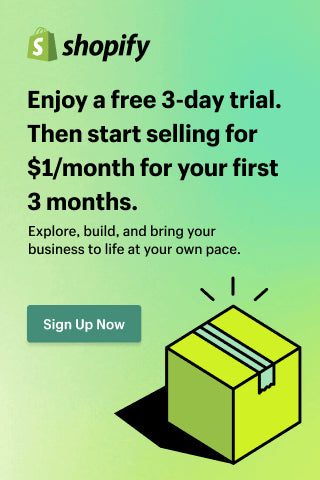6 Steps to Building a Million-Dollar Ecommerce Site in 60 Days
Jared Goetz spent only 30 minutes a day and built a colossal Shopify sales machine.

Jared Goetz, serial entrepreneur and member of The Oracles, always had a knack for reaching an audience. At 26 years old, he's co-founded four multimillion-dollar companies.
Whether he's throwing the world's largest foam party with fire breathers and circus acts ("Electric Flurry") or selling inflatables to college students via viral campaigns ("Dumbo Lounge Sacks"), this serial entrepreneur knows how to turn an audience into a profit machine.
His latest venture, The Gadget Snob, is no different. An ecommerce store that supplies everything from jet-flamed pencils to laser keyboards, Goetz took his business from zero to $2 million in 60 days by plugging into the right audience. That's no small feat in a competitive industry forecast to surpass $4 trillion in sales by 2020.
Goetz's secret sauce to reaching the masses? Experimentation. As he explains, "You don't know what people will respond to until you try a lot of things. Don't be afraid to think outside the box."
Goetz shares six key components to building his million-dollar ecommerce store and turning profits in less than a business quarter.
1. Don't reinvent the merchandise wheel.
"Many owners think they have to reinvent the wheel with the merchandise they sell," Goetz explained. Instead, he suggests focusing on products with a proven track record of success. "An easy way to spot a market trend is gauging how a product performs on social media. If an item is getting 10,000 Facebook Likes in less than a few hours, that's a tell."
When choosing merchandise, it's also crucial to differentiate between commoditized and unique products. Commoditized products are widely available. Unique products are less accessible handmade or niche products that aren't mass produced. "If you go niche, gauge demand first. Observe what people are looking for. You might be surprised to see what's selling."
2. Create a formula, then rewrite it.
Ecommerce comes down to a formula, Goetz says, and the outcome is affected by different variables: product, advertisement, landing page optimization, and customer lifetime value.
"Once you figure out what produces the best margin, copy that. Most who fail in ecommerce are 90 percent there but haven't worked out all the variables in their formula," Goetz shares.
For Goetz, a pivotal variable was drop shipping. "I spent a lot of time bootstrapping my earlier companies. Drop shipping was a game-changer because it allowed me to advertise before securing the inventory, yielding greater outcomes."
3. Build a legit Shopify store.
A successful Shopify store must win confidence. "In the sometimes-fraudulent digital ecosystem, you have to earn a consumer's trust," Goetz says. "A money-back guarantee and free shipping guarantee are great places to start."
Goetz also suggests choosing a theme that's congruent with your industry. "With branding, you want to look professional, not spammy or creepy." Gadgets are fun and technical, so his site has bright colors and precise language. "If I were running a men's fashion store or toy store, I'd change my theme to match the merchandise and brand. Branding is key to converting customer views into sales."
4. Find winning ads with huge ROI and scale.
For Goetz, marketing comes down to one word: testing. "The only way to find out what works is to test it many times," he says. "Test 10 audiences on each product, so you know where to invest your energy." For The Gadget Snob, Goetz hired an ad manager to optimize Facebook campaigns. "When you strike gold with a successful ad, replicate it, but scale incrementally to ensure you're staying targeted." He suggests increasing ad spend 20 percent per day, not 500 percent.
When building campaigns, it's also vital to use language that's shareable and creative. Sales psychology is your friend. From his perspective, classic scarcity techniques have been around for centuries for a reason. "Try incorporating a quantity incentive: if you buy one, it's full price; if you buy two, it's 50 percent off and so forth."
"Creating an email list is also vital. Email campaigns have a higher conversion rate than cold Facebook campaigns, and you can incentivize email campaigns with rewards. You can make money by merely pushing "send.'"
5. Hire a VA, then specialists.
For Goetz, hiring a virtual assistant was essential to scaling. "At first, my VA helped with everything," he says. Once his site got off the ground, Goetz hired people with specialized jobs for specific tasks.
He also stresses the importance of universal procedures. "Having clear onboarding processes and procedures is key to growth. Make your systems as easy as possible because while you might have 100 orders today, tomorrow you'll have quadruple that."
6. Get your customer support airtight.
For a store to operate at full throttle, Goetz stresses the importance of customer support to maximize your profits. "You need your customer support to be airtight and available 24/7," he says. "Online shopping goes all night and people place orders at all hours."
To support questions and concerns, Goetz says that live chat and around-the-clock customer service is a must. "In our era of Amazon Prime, customer service expectations have never been higher, he says. "The last thing you want is a minute hiccup or technical goof obstructing a sale."
Ultimately, ecommerce allows entrepreneurs to reach untapped markets and reap the rewards. As Goetz puts it: "My ecommerce site affords me ultimate freedom." By following a few basic steps, you, too, can build a Shopify store to run from anywhere in the world, and perhaps even create your own million-dollar sales machine.
